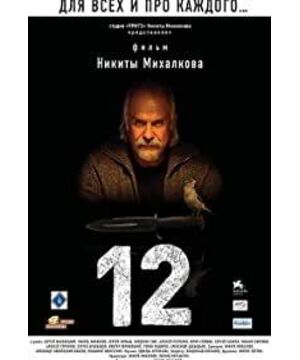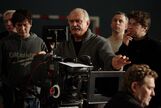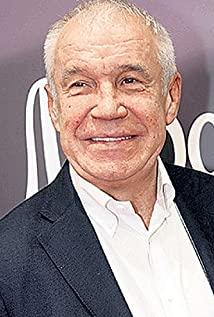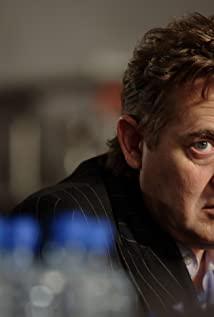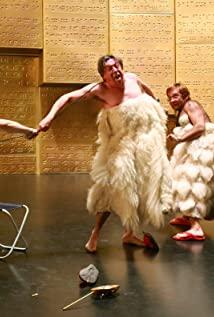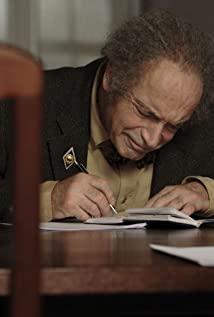Nikita Mikhalkov (Никита Михалков), Alexander Novotsky (Алексадр Новотоцкий) and Vladimir Moiseyenko (Владимир Моисеенко) are apparently three of the Russian classics. Deep filmmaker. But when I saw their 2008 American adaptation of Twelve Angry Men, I was disappointed by the "Russification" stuff - they were too familiar to impress; instead, they were I am deeply sorry.
The Russian version of "Twelve Angry Men" presented a familiar scene to the audience after playing the dazzling Russian-style montage title. This scene once happened at the beginning of Leo Tolstoy's famous book "The Resurrection": In a courtroom, a group of jurors listen to the presiding judge, asking them to take a criminal case carefully and make a judgment on whether the defendant is guilty or not. Those present are either absent-minded, engrossed, or indignant. After entering the jury collegiate hall, these jurors began to have their own minds, trying to make early judgments for the sake of daily affairs, and then they began to talk about... But in Tolstoy, the jury ended up by accident. Defendant Maslova was convicted. In this film, however, it detonated a long controversy.
On the face of it, the subsequent story unfolds very differently. However, in fact, the inner spiritual logic of the Russian version of "Twelve Angry Men" and "Resurrection" are completely consistent - they are both paranoid about moral examination, but despise the law, disregard procedural justice, and understand the profound Connotation is very deep.
Let's go back to the beginning of the movie. From the time twelve citizen jurors from all walks of life in Moscow entered the gym and started the meeting noisily, until the twelve responded after the second vote, it was no less skillful than the American original. However, the Russification of the place then began. The same "beginning" also occurs in "Resurrection". Tolstoy's novel describes a case after modern judicial reform in Russia, but Tolstoy is completely alienated from this era that established judicial independence and transparency, and describes the trial as a dark humor. scene. By alienating himself from the judicial process, Tolstoy leads both the character's spiritual development and the reader's point of view to moral interrogation.
In the Russian version of Twelve Angry Men, the Tolstoy-esque denigration is long gone—perhaps a reflection of Russia's progress over the past century. But the Tolstoy diaphragm still exists. "But we are talking about individuals, individuals!" When the Russian engineer uttered these words, he had already begun to use the theory of human nature in Russian classical literature. At this time, a dialogue about anti-Semitic racism, one of the major social issues in Russian society, was entered. From this, on the one hand, it is a discussion and presentation of current social problems in Russia, and on the other hand, a trial of a case with the background of the Chechen war. Everyone present began to tell their own little stories and experiences. Engineers tell how they fell and recovered; workers tell how their uncles gambled, robbed, and were forgiven; the most vocal opponents complained that Moscow was no longer a Moscow for Muscovites; old Jewish men told of their father's affairs; there were even Waving a dagger and dancing the dance of the Caucasian mountain people...
This kind of storytelling meeting is a traditional routine in Russian literature - a group of people get together for various reasons, and then start to tell stories and discussions, which are pleasant to the ears. , fascinating, with some dazzling unique skills or singing and dancing in the middle, the participants enjoyed it all night long. Such symposiums abound in the works of Chekhov, Tolstoy, Turgenev, to Dostoevsky, Bunin, and even Sholokhov. This Russian symposium is no ordinary story party. Its central theme is from objective storytelling, branching little by little, passing through the intersection of reality and emotion, and gradually transitioning to inner moral reflection. Its themes are life, destiny, and moral criticism of society. For example, the cemetery manager said, "The law is dead and impersonal." Then the cemetery manager began to complain about the bureaucracy and irresponsibility of Russian society. He concluded that "in seventy years, the country has not made any progress". In one gushing after another, chaos in the Caucasus, discrimination against Caucasians, corruption and immorality in society were discussed. All of this has nothing to do with the case. ——They are not trying a serious criminal case, but criticizing Russian society, just as Nekhludoff observed and reflected on the progress of the Maslova case.
When the director turned this serious judicial trial into a literary party, the logic of spiritual development in Tolstoy's "Resurrection", which turned to the moral heart, began to work. Although the director followed the original film step by step and presented several key questions, at this time, the central theme of Symposium is no longer to scrutinize various evidence and testimony through strict judicial logic, and to pursue the closest justice judgment.
In the original American version, jurors alternated between "guilty" and "not guilty," all based on judicial logic and reasonable doubts about evidence and testimony. Jane Fonda's fierce defense against Confucian scholars is full of suspicion, prudence and decisiveness of rational torture. However, in the Russian version, the jurors' shift between "guilty" and "innocence" is not based on logical reason, but on conscientious sympathy or doubt. The logical conflict between several key questions (knife, old man, female witness) involved in the original American version is presented in relation to each other, while in the Russian version, these items are isolated from each other and logically related to each other not taken seriously. They only serve as a stepping stone for the advancement of the plot, and they are not the natural expression of the whole film's connotation. Because the center of the Russian version is not the judicial procedure of the case itself, but the moral reflection and criticism of the reality of Russian society. Jurors in Moscow were concerned with the moral rather than the logical connections between the key challenges in the case.
Mr. Nekhludoff, the penitent nobleman in "Resurrection", doubted, denied and rebelled against the judicial system and even the entire Russian society because of the jury activity. In the end, he followed the insulted and injured Maslova to Siberia to join the army, enduring bitter cold and suffering, and starting the redemption and renewal of his soul. In the Russian version of "Twelve Angry Men", Nekhludoff is represented as twelve Moscow citizens. The soul torture of this penitent nobleman was transformed into a moral dialogue and refutation by twelve people. The 12 jurors, who were initially careless and heartless, gradually moved towards sympathy, understanding, care and acceptance of the Chechen teenagers. This is precisely the end of Russian-style moral forgiveness—forgiving the suffering sinner. It's just that in this movie, only an innocent teenager with the title of "criminal" is accepted.
At the beginning of the film, the engineer says, "But we're talking about a person, a person!" The "person" he defines is only a person in a moral sense. By the end of the film, he returned to the gym where the jury meeting was held, focused on the Orthodox Virgin Mary, and released the little sparrow, a symbol of the coming of the Holy Spirit. With this move, the film completes the entire statement of the moral definition of man. In the Gospel of Mark, it is said that the Spirit of God descended like a dove and landed on him (Jesus). (Mark, 3:16) Here sparrows take the place of doves, bringing God's Spirit of forgiveness to sinners among the twelve jurors. When it flies away, it has washed away the filth of the heart. At the end of the meeting, almost all of the jurors present confessed that they knew the defendant's life experience very well - they were actually insiders. At this time, the audience suddenly realized: it turned out that they were just doing a moral torture, and the result they pursued is - forgive sinners, discover conscience, and renew their souls. The Coliseum is a holy Orthodox church. The cemetery manager is like a priest, telling the story of letting the rich and the poor change the cemetery in fifteen minutes. This story is about telling people that good is rewarded. At this point, the entire spiritual heritage of the Russian version is fully revealed, and it is a replica of "Resurrection".
The difference is so stark that it's hard to compare the Russian version of "Twelve Angry Men" with the American original. These are two completely different ways. Obviously, the moral questioning, inquiry, sympathy, lamentation and acceptance of the Russian version are all Tolstoy-style spiritual torture. This kind of concern is completely the spiritual tradition of Russian classical literature. Thus, the Russian version appears to be emphasizing procedural justice, but it is not at all—it is still concerned with the old Russian-style moral and religious torture. The theme of the entire Russian version of Twelve Angry Men is punctuated by allusions to the facts of the murder case. The film repeatedly implies that the culprit is the capitalists who carried out the demolition at the crime scene - "They want to drive away two old people for the sake of capitalism." This is the social reality that the director wants to accuse: people's greed has been indulged, causing evil in reality.
In fact, the Russian-style moral torture has nothing to do with procedural justice. The spiritual tradition of Russian classical literature is concerned with social justice and good deeds. Therefore, in the Russian version of "12 Angry Men", the American judicial spirit is mocked several times, and at the beginning of the film, the manager who has returned from studying law at Harvard is portrayed as a harlequin character. Nikita Mikhalkov is concerned with social justice in Russia, and he doubts that procedural justice can lead to real justice. That's why the movie ends with a sentence: the law is supreme, but kindness is higher than the law!
The Russian version of "Twelve Angry Men" once again exposed the shortcomings of Russian thought: it did not understand the meaning of procedural justice, and did not understand the profound humanitarian connotations contained in rational procedural questioning; The rational quest of experience to find moral justice. This is the tragedy of Russian thought since the 1860s. It’s not hard to notice the most mentioned keywords in both versions. The key word in the US version is "reasonable questioning"; in the Russian version, it is "conscience." The difference is sobering.
A heavy dose of Russian classical literature spoils this wonderful judicial film. Compared to the 1957 American original, directed by Sydney Lumert and written by Reginald Rose, Mikhalkov's Russianization efforts strayed even further from the spirit of the rule of law. The rational spirit that is indispensable when reflecting on social reality.
View more about 12 reviews


